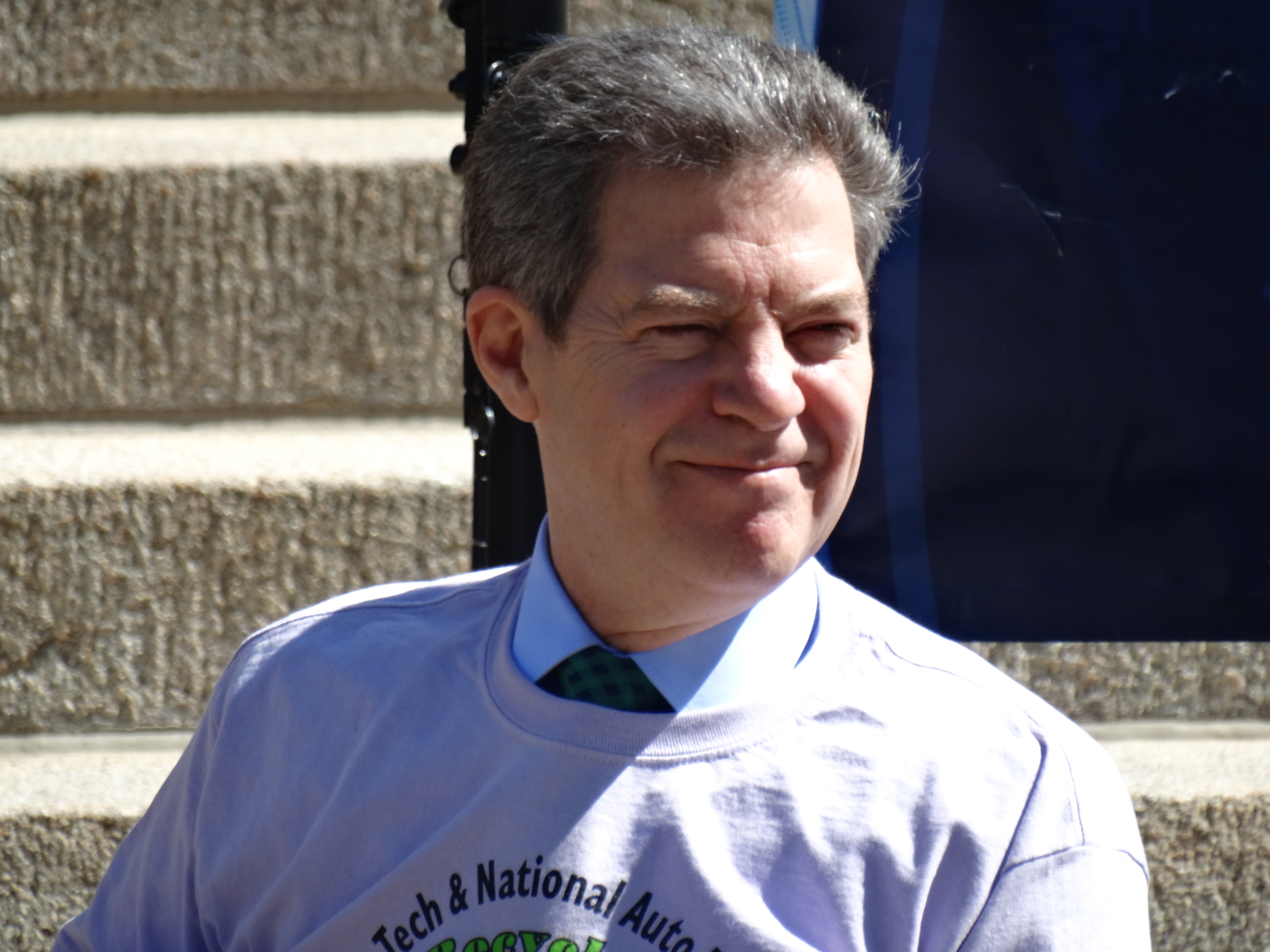Brownback predicts ‘a lot of financial strain that’s going to be continuing’ for Kansas

photo by: Peter Hancock
Gov. Sam Brownback says there were big items on his agenda this year that the Kansas Legislature did not address.
Topeka ? Gov. Sam Brownback said Tuesday that there were a number of big items on his legislative agenda this year that lawmakers did not address, namely changing the way Supreme Court justices are chosen and enacting a new school funding formula.
But he said the biggest challenge facing the state over the next year will be lagging state finances, which he blamed on a bad economy in rural Kansas.
“We’ve got a lot of financial strain that’s going to be continuing just because of oil and gas, and agriculture in particular, because that has property tax implications to it,” he said.
Brownback spoke briefly with reporters Tuesday after attending a ceremony on the south steps of the Statehouse.

photo by: Peter Hancock
Gov. Sam Brownback says there were big items on his agenda this year that the Kansas Legislature did not address.
Early Monday, lawmakers adjourned the 2016 session after passing a budget that will require him to find an estimated $92 million in cuts and efficiency savings in order to keep a positive balance in the state general fund.
Also, the budget requires any excess revenue the state receives above the official estimates, plus excess tobacco settlement funding it receives above the amount earmarked for children’s programs be used to repay the state pension system for the $92 million payment that was delayed in mid-April due to revenue shortfalls.
That means the state will be unlikely to have any ending balances until that payment is made up, with 8 percent annual interest, which some lawmakers have said could take up to 10 years.
Brownback wouldn’t comment when asked whether he thinks the budget that lawmakers passed this week is constitutional.
“I haven’t looked at it,” Brownback said. “We haven’t done our full analysis, so I don’t have a good answer for you yet.”
Questions have been raised about its constitutionality because the budget plan calls for spending more money than current revenue forecasts say the state will have.
Article 11, Section 4 of the Kansas Constitution, however, states: “The Legislature shall provide, at each regular session, for raising sufficient revenue to defray the current expenses of the state for two years.”
The budget that lawmakers passed early Monday morning covers the remainder of the current fiscal year, and funding for the next fiscal year which begins July 1. It is that next fiscal year in which the additional cuts and efficiency savings will be necessary.
Outside the budget, Brownback had asked for several major policy changes when he delivered his State of the State address in January, including changing the way Supreme Court justices are selected and passing a new, comprehensive school funding formula to replace the one lawmakers repealed last year.
The Kansas House in early February was unable to pass a proposed constitutional amendment that would have allowed governors to make their own appointments, subject to Senate confirmation, a plan often referred to as the “federal model” because it’s similar to the way federal judges are chosen.
Although the 68-54 vote showed a majority of House members supported the idea, that was short of the two-thirds majority, or 83 votes, needed to pass a constitutional amendment.
Only a few days after that vote, the Supreme Court struck down part of the temporary funding plan lawmakers enacted last year, saying it shortchanged poor school districts and did not satisfy the constitutional requirement for equitable funding.
Republican leaders said that diverted their attention away from working on a new, permanent funding system because the court had threatened to close public schools if the equalization aid formula was not fixed by July 1.
The changes lawmakers approved are now under review by the court, which will hear oral arguments in the case May 10.
“I’d like to have seen us do school finance, but we still have the second year of the block grant,” Brownback said. “That’s a very hard one to do, and most people don’t want to do that until they absolutely have to.”







